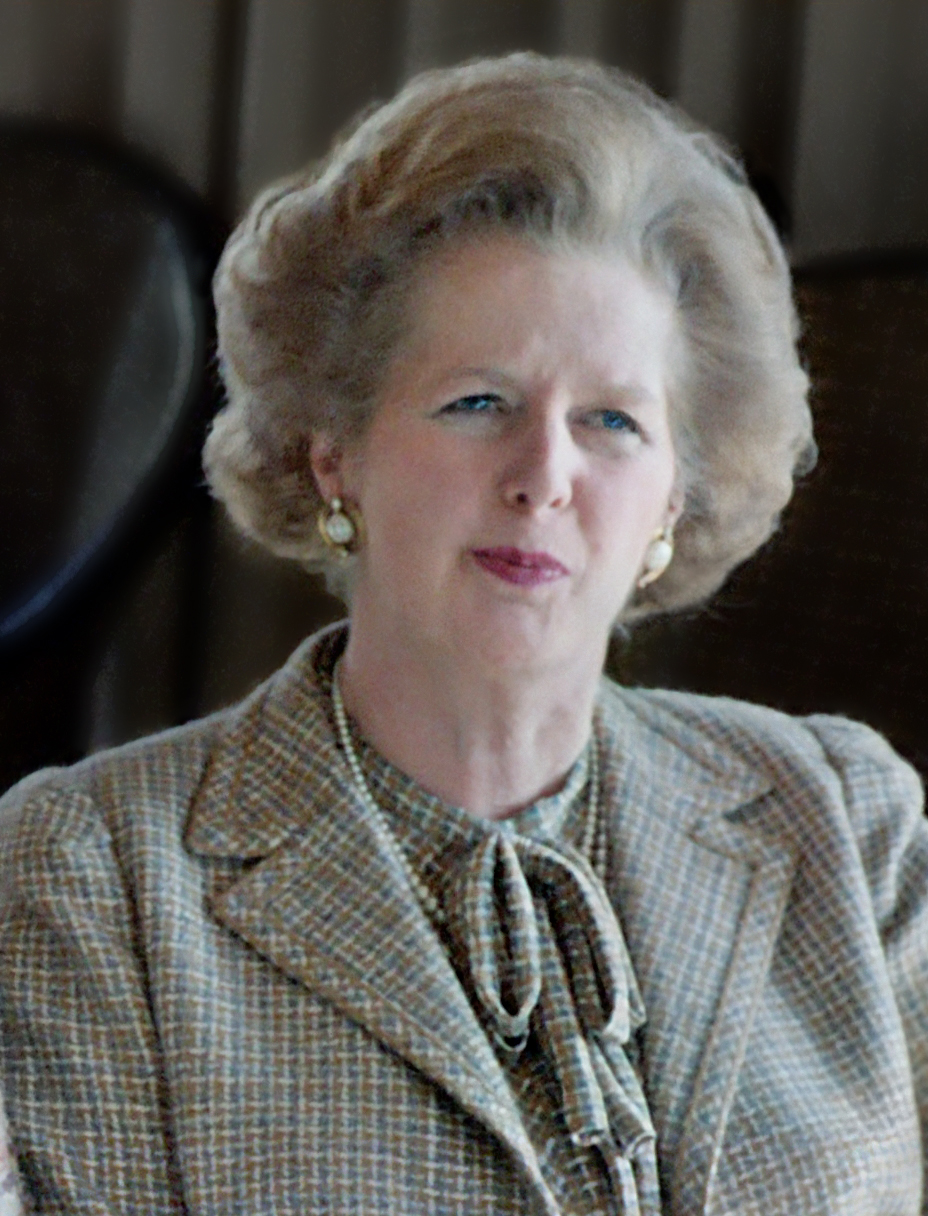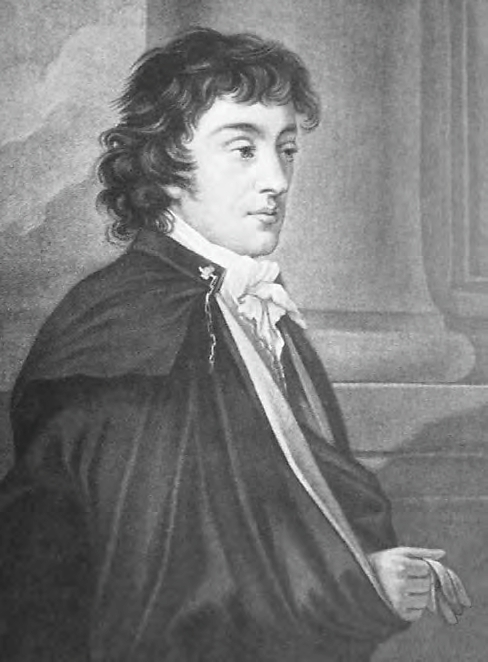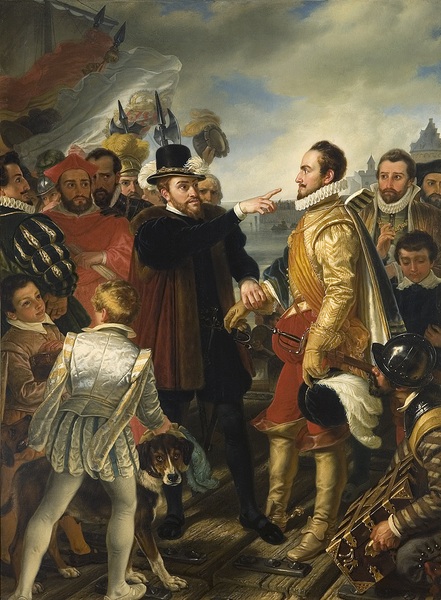|
College Of Europe Promotion
Academic years at the College of Europe are known as promotions. Each promotion is named after an outstanding European. A list of the promotions follows: * 1949 Préparatoire (no name) * 1950-1951 Antoine de Saint-Exupéry * 1951-1952 Juan Vives * 1952-1953 Tomáš Garrigue Masaryk * 1953-1954 Erasmus * 1954-1955 Alcide De Gasperi * 1955-1956 Virgil * 1956-1957 Raoul Dautry * 1957-1958 Henry the Navigator * 1958-1959 Fridtjof Nansen * 1959-1960 Sully * 1960-1961 Saint-Simon * 1961-1962 Gottfried Wilhelm Leibniz * 1962-1963 August Vermeylen * 1963-1964 Thomas Paine * 1964-1965 Robert Schuman * 1965-1966 Thomas More * 1966-1967 George C. Marshall * 1967-1968 Comenius * 1968-1969 Konrad Adenauer * 1969-1970 William the Silent * 1970-1971 Winston Churchill * 1971-1972 Dante Alighieri * 1972-1973 Richard von Coudenhove-Kalergi * 1973-1974 Giuseppe Mazzini * 1974-1975 Aristide Briand * 1975-1976 Adam Jerzy Czartoryski * 1976-1977 Peter Paul Rubens * 1977-1978 Karl Renner * 1978-1979 Pau ... [...More Info...] [...Related Items...] OR: [Wikipedia] [Google] [Baidu] |
College Of Europe
The College of Europe (; ; ) is a post-graduate institute of European studies with three campuses in Bruges, Belgium; Warsaw, Poland; and Tirana, Albania. The College of Europe in Bruges was founded in 1949 as a result of the 1948 Congress of Europe in The Hague by leading historical European figures and founding fathers of the European Union, including Salvador de Madariaga, Winston Churchill, Paul-Henri Spaak and Alcide De Gasperi, to promote "a spirit of solidarity and mutual understanding between all the nations of Western Europe and to provide elite training to individuals who will uphold these values"Le rôle du Collège d'Europe " [The role of the College of Europe], ''Journal de Bruges et de la Province'', 7 October 1950, Vol. 114, No. 78, p. 1 [...More Info...] [...Related Items...] OR: [Wikipedia] [Google] [Baidu] |
Thomas More
Sir Thomas More (7 February 1478 – 6 July 1535), venerated in the Catholic Church as Saint Thomas More, was an English lawyer, judge, social philosopher, author, statesman, theologian, and noted Renaissance humanist. He also served Henry VIII as Lord Chancellor from October 1529 to May 1532. He wrote ''Utopia (book), Utopia'', published in 1516, which describes the political system of an utopia, imaginary island state. More opposed the Protestant Reformation, directing polemics against the theology of Martin Luther, Huldrych Zwingli and William Tyndale. More also opposed Henry VIII's separation from the Catholic Church, refusing to acknowledge Henry as supreme head of the Church of England and the annulment of his marriage to Catherine of Aragon. After refusing to take the Oath of Supremacy, he was convicted of treason on what he stated was false evidence, and was executed. At his execution, he was reported to have said: "I die the King's good servant, and God's first." Pope ... [...More Info...] [...Related Items...] OR: [Wikipedia] [Google] [Baidu] |
Paul-Henri Spaak
Paul-Henri Charles Spaak (; 25 January 1899 – 31 July 1972) was an influential Belgian Socialist politician, diplomat and statesman who thrice served as the prime minister of Belgium and later as the second secretary general of NATO. Nicknamed "Mr. Europe", he was a leader in the formation of the institutions that evolved into the current European Union, along with Robert Schuman, Alcide De Gasperi and Konrad Adenauer. A member of the influential Spaak family, he served briefly in World War I before he was captured, and rose to prominence after the war as a tennis player and lawyer, becoming famous for his high-profile defence of an Italian student accused of attempting to assassinate Italy's crown prince in 1929. A convinced socialist, Spaak entered politics in 1932 for the Belgian Workers' Party (later the Belgian Socialist Party) and gained his first ministerial portfolio in the government of Paul Van Zeeland in 1935. He became the prime minister in 1938 and held t ... [...More Info...] [...Related Items...] OR: [Wikipedia] [Google] [Baidu] |
Karl Renner
Karl Renner (14 December 1870 – 31 December 1950) was an Austrian politician and jurist of the Social Democratic Party of Austria, Social Democratic Workers' Party of Austria. He is often referred to as the "Father of the Republics" because he led the first government of the Republic of German-Austria and the First Austrian Republic in 1919 and 1920, and was once again decisive in establishing the present Second Republic after the fall of Nazi Germany in 1945, becoming its first President of Austria, President after World War II (and fourth overall). Early life Renner was born the 18th child of an Sudeten Germans, ethnic German family of poor wine-growers in Dolní Dunajovice, Unter-Tannowitz (present-day Dolní Dunajovice in the Czech Republic), then part of the Margraviate of Moravia, a crown land of the Austria-Hungary, Austro-Hungarian Empire. Because of his intelligence, he was allowed to attend a selective ''Gymnasium (school), gymnasium'' in nearby Mikulov, Nikolsburg (M ... [...More Info...] [...Related Items...] OR: [Wikipedia] [Google] [Baidu] |
Peter Paul Rubens
Sir Peter Paul Rubens ( ; ; 28 June 1577 – 30 May 1640) was a Flemish painting, Flemish artist and diplomat. He is considered the most influential artist of the Flemish Baroque painting, Flemish Baroque tradition. Rubens' highly charged compositions reference erudite aspects of classical and Christian history. His unique and immensely popular Baroque style emphasised movement, colour, and sensuality, which followed the immediate, dramatic artistic style promoted in the Counter-Reformation. Rubens was a painter producing altarpieces, portraits, landscapes, and history paintings of mythological and allegorical subjects. He was also a prolific designer of cartoons for the Flemish tapestry workshops and of Book frontispiece, frontispieces for the publishers in Antwerp. Rubens was born and raised in the Holy Roman Empire (modern-day Germany) to parents who were refugees from Antwerp in the Duchy of Brabant in the Southern Netherlands (modern-day Belgium) and moved to Antwerp at ab ... [...More Info...] [...Related Items...] OR: [Wikipedia] [Google] [Baidu] |
Adam Jerzy Czartoryski
Adam Jerzy Czartoryski (14 January 1770 – 15 July 1861), also known as Adam George Czartoryski, was a Polish szlachta, nobleman, statesman, diplomat and author who served as Chairman of the Council of Ministers of the Russian SFSR, Chairman of the Council of Ministers of the Russian Empire. The son of a wealthy prince, he began his political career as a foreign minister to Emperor Alexander I of Russia after Poland was Partitions of Poland, partitioned by Russia, Prussia and Austria. He later became a leader of the Polish government in exile during and after the failed November Uprising (1830–1831) and a bitter opponent of Alexander's successor, Nicholas I of Russia, Nicholas I. In exile, he advocated for the reestablishment of a sovereign Polish state, which also stimulated early Balkan and Belgium, Belgian nationalism, and intensified their desire for independence. Czartoryski was a dedicated patron of arts and greatly contributed to the Czartoryski Museum, Czartorys ... [...More Info...] [...Related Items...] OR: [Wikipedia] [Google] [Baidu] |
Aristide Briand
Aristide Pierre Henri Briand (; 28 March 18627 March 1932) was a French statesman who served eleven terms as Prime Minister of France during the French Third Republic. He is mainly remembered for his focus on international issues and reconciliation politics during the interwar period (19181939). In 1926, he received the Nobel Peace Prize along with German Foreign Minister Gustav Stresemann for the realization of the Locarno Treaties, which aimed at reconciliation between France and Germany after the First World War. To avoid another worldwide conflict, he was instrumental in the agreement known as the Kellogg–Briand Pact of 1928, as well to establish a "History of the European Union, European Union" in 1929. However, all his efforts were compromised by the rise of nationalistic and revanchist ideas like Nazism and fascism following the Great Depression. Early life He was born in Nantes, Loire-Atlantique, Loire-Inférieure (now Loire-Atlantique) of a ''petite bourgeoisie, pet ... [...More Info...] [...Related Items...] OR: [Wikipedia] [Google] [Baidu] |
Giuseppe Mazzini
Giuseppe Mazzini (, ; ; 22 June 1805 – 10 March 1872) was an Italian politician, journalist, and activist for the unification of Italy (Risorgimento) and spearhead of the Italian revolutionary movement. His efforts helped bring about the independent and unified Italy in place of the several separate states, many dominated by foreign powers, that existed until the 19th century. An Italian nationalist in the historical radical tradition and a proponent of a republicanism of social-democratic inspiration, Mazzini helped define the modern European movement for popular democracy in a republican state. Mazzini's thoughts had a very considerable influence on the Italian and European republican movements, in the Constitution of Italy, about Europeanism and more nuanced on many politicians of a later period, among them American president Woodrow Wilson, British prime minister David Lloyd George, Mahatma Gandhi, Indian prime minister Jawaharlal Nehru, and Indian independence activis ... [...More Info...] [...Related Items...] OR: [Wikipedia] [Google] [Baidu] |
Richard Von Coudenhove-Kalergi
Richard Nikolaus Eijiro, Count of Coudenhove-Kalergi (16 November 1894 – 27 July 1972), was a politician, philosopher, and count of Coudenhove-Kalergi. A pioneer of European integration, he served as the founding president of the Paneuropean Union for 49 years. His parents were Heinrich von Coudenhove-Kalergi, an Austro-Hungarian diplomat, and Mitsuko Aoyama, the daughter of an oil merchant, antiques-dealer and major landowner in Tokyo. His childhood name in Japan was Eijiro Aoyama. Being a native Austrian-Hungarian citizen, he became a Czechoslovak citizen in 1919 and then took French citizenship from 1939 until his death. His first book, ''Pan-Europa'', was published in 1923 and contained a membership form for the Pan-Europa movement, which held its first Congress in 1926 in Vienna. In 1927, Aristide Briand was elected honorary president of the Pan-Europa movement. Public figures who attended Pan-Europa congresses included Albert Einstein, Thomas Mann and Sigmund Freud. ... [...More Info...] [...Related Items...] OR: [Wikipedia] [Google] [Baidu] |
Dante Alighieri
Dante Alighieri (; most likely baptized Durante di Alighiero degli Alighieri; – September 14, 1321), widely known mononymously as Dante, was an Italian Italian poetry, poet, writer, and philosopher. His ''Divine Comedy'', originally called (modern Italian: ) and later christened by Giovanni Boccaccio, is widely considered one of the most important poems of the Middle Ages and the greatest literary work in the Italian language. Dante chose to write in the vernacular, specifically, his own Tuscan dialect, at a time when much literature was still written in Latin, which was accessible only to educated readers, and many of his fellow Italian poets wrote in French or Provençal dialect, Provençal. His ' (''On Eloquence in the Vernacular'') was one of the first scholarly defenses of the vernacular. His use of the Florentine dialect for works such as ''La Vita Nuova, The New Life'' (1295) and ''Divine Comedy'' helped establish the modern-day standardized Italian language. His wo ... [...More Info...] [...Related Items...] OR: [Wikipedia] [Google] [Baidu] |
Winston Churchill
Sir Winston Leonard Spencer Churchill (30 November 1874 – 24 January 1965) was a British statesman, military officer, and writer who was Prime Minister of the United Kingdom from 1940 to 1945 (Winston Churchill in the Second World War, during the Second World War) and again from 1951 to 1955. For some 62 of the years between 1900 and 1964, he was a Member of Parliament (United Kingdom), member of parliament (MP) and represented a total of five Constituencies of the Parliament of the United Kingdom, constituencies over that time. Ideologically an adherent to economic liberalism and imperialism, he was for most of his career a member of the Conservative Party (UK), Conservative Party, which he led from 1940 to 1955. He was a member of the Liberal Party (UK), Liberal Party from 1904 to 1924. Of mixed English and American parentage, Churchill was born in Oxfordshire into the wealthy, aristocratic Spencer family. He joined the British Army in 1895 and saw action in British R ... [...More Info...] [...Related Items...] OR: [Wikipedia] [Google] [Baidu] |
William The Silent
William the Silent or William the Taciturn (; 24 April 153310 July 1584), more commonly known in the Netherlands as William of Orange (), was the leader of the Dutch revolt against the Spanish Habsburg Netherlands, Habsburgs that set off the Eighty Years' War (1568–1648) and resulted in the formal independence of the Dutch Republic, United Provinces in 1648. Born into the House of Nassau, he became Prince of Orange in 1544 and is thereby the founder of the House of Orange-Nassau, Orange-Nassau branch and the ancestor of the monarchy of the Netherlands. In the Netherlands, he is also known as Father of the Nation, Father of the Fatherland (; ). A wealthy nobleman, William originally served the Habsburgs as a member of the court of Margaret of Parma, governor of the Spanish Netherlands. Unhappy with the centralisation of political power away from the local estates and with the Spanish persecution of Dutch Protestants, William joined the Dutch uprising and turned against his fo ... [...More Info...] [...Related Items...] OR: [Wikipedia] [Google] [Baidu] |







